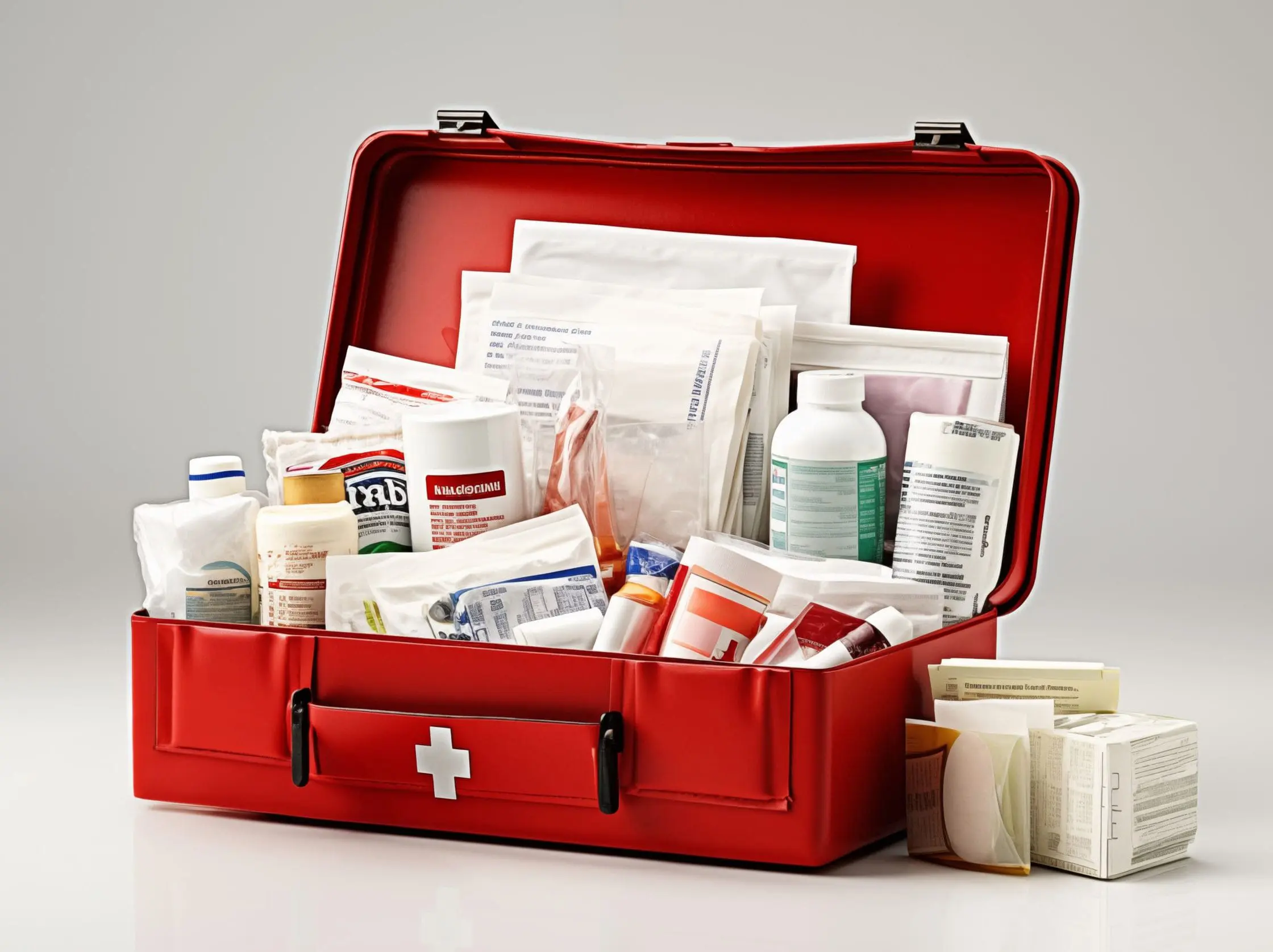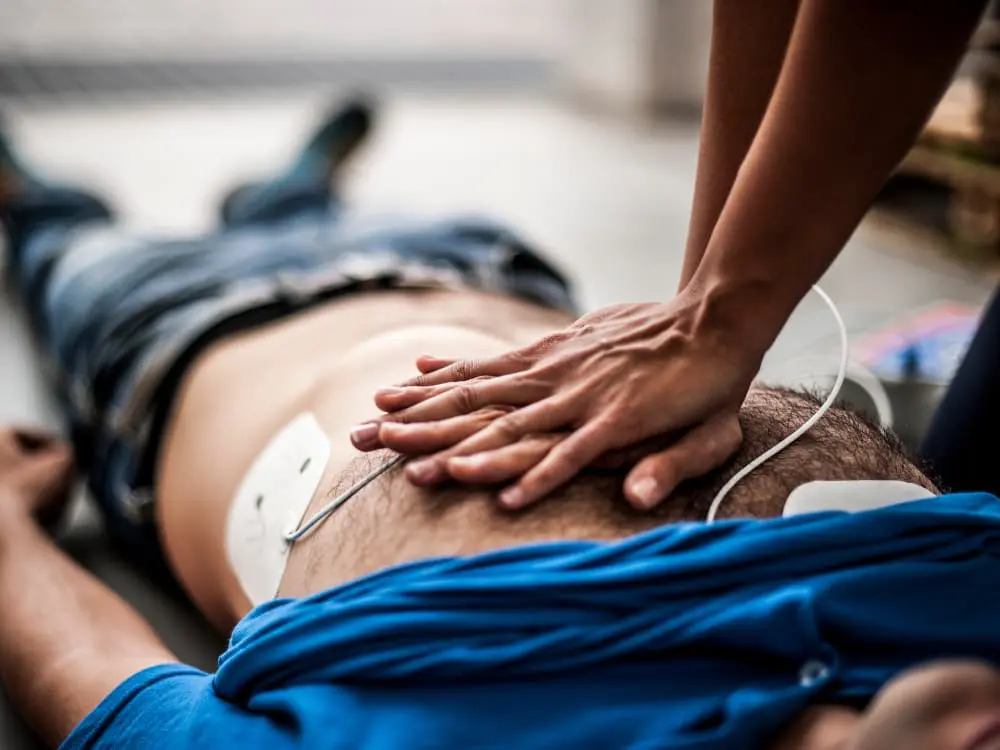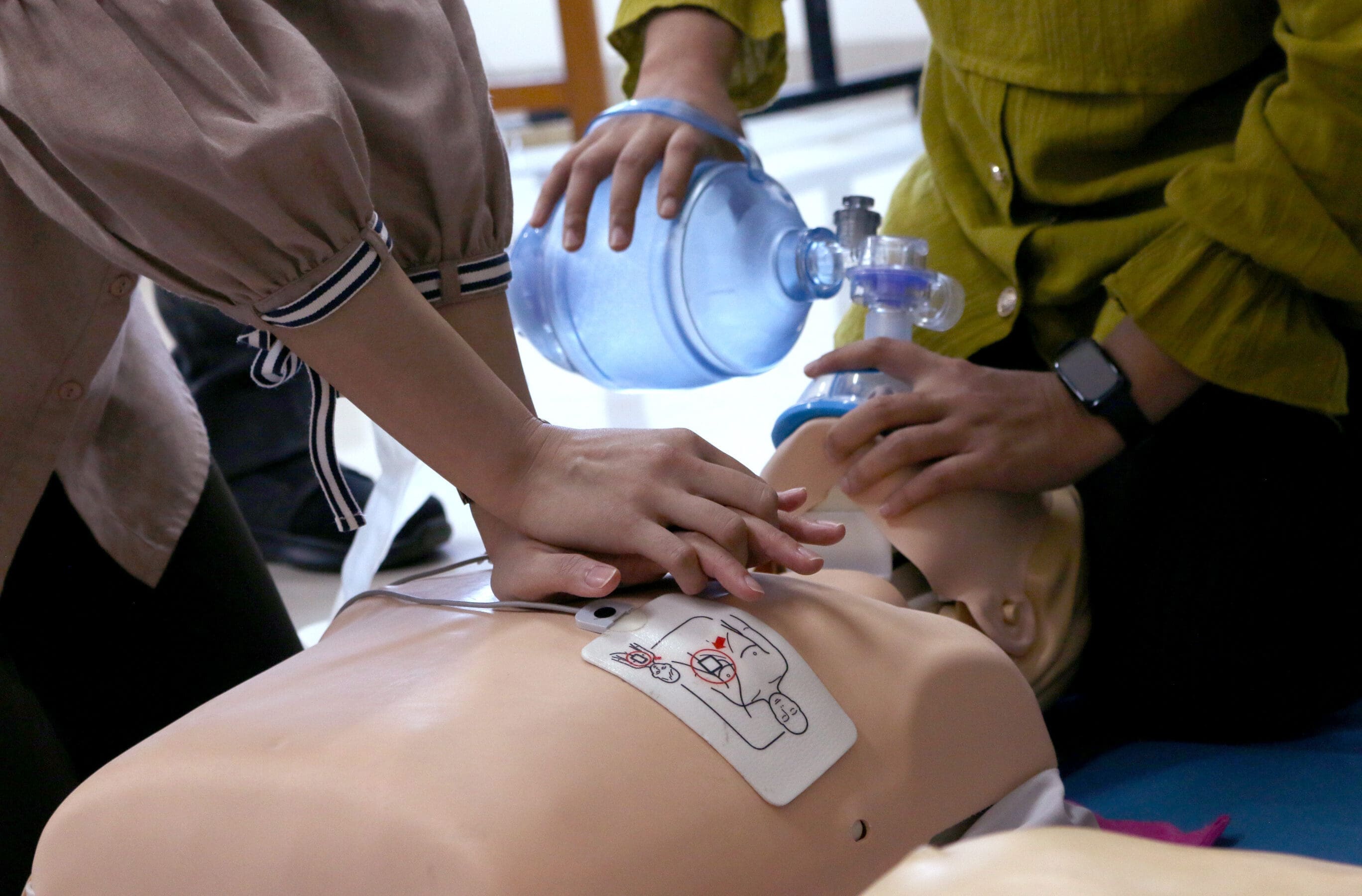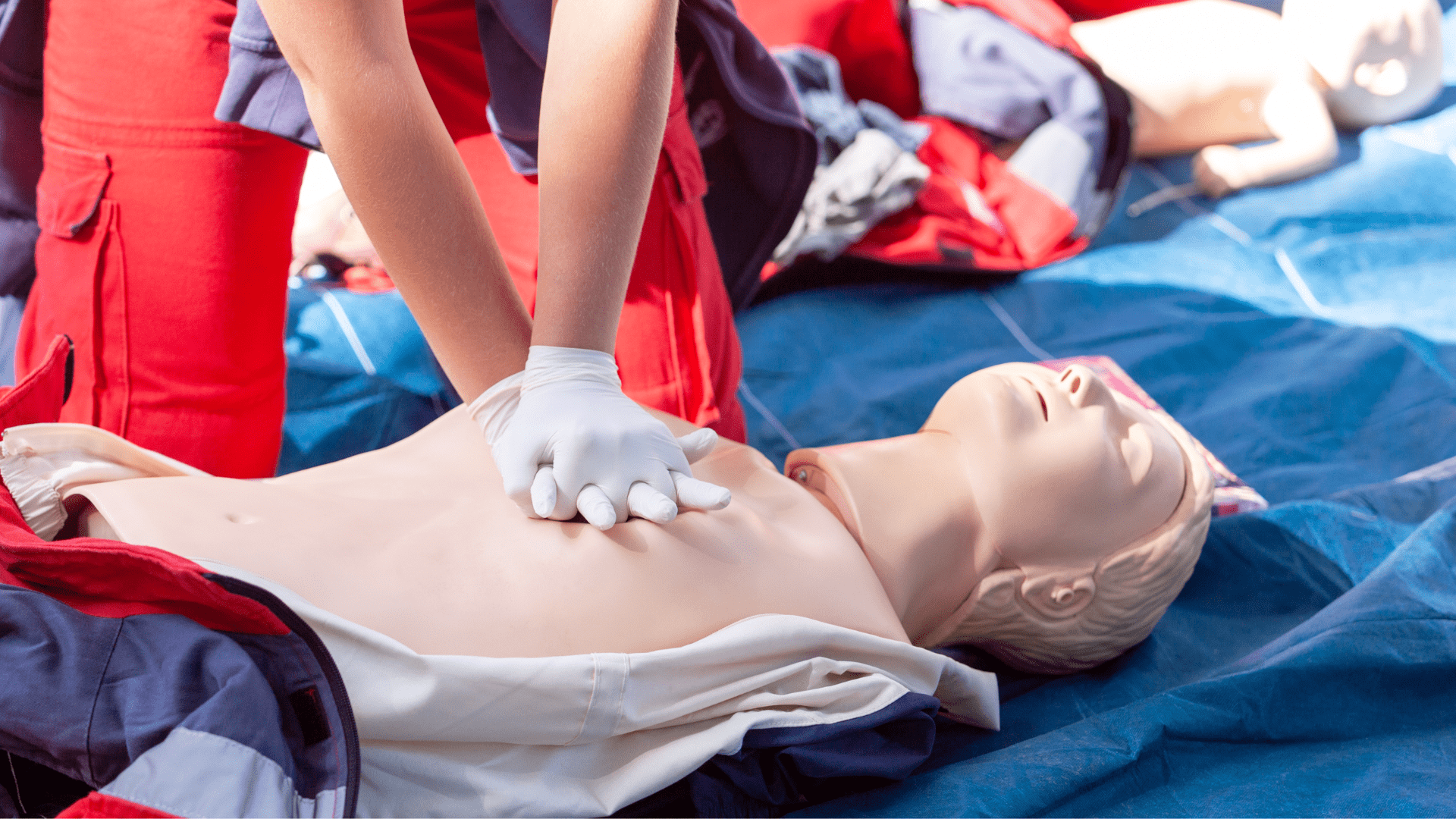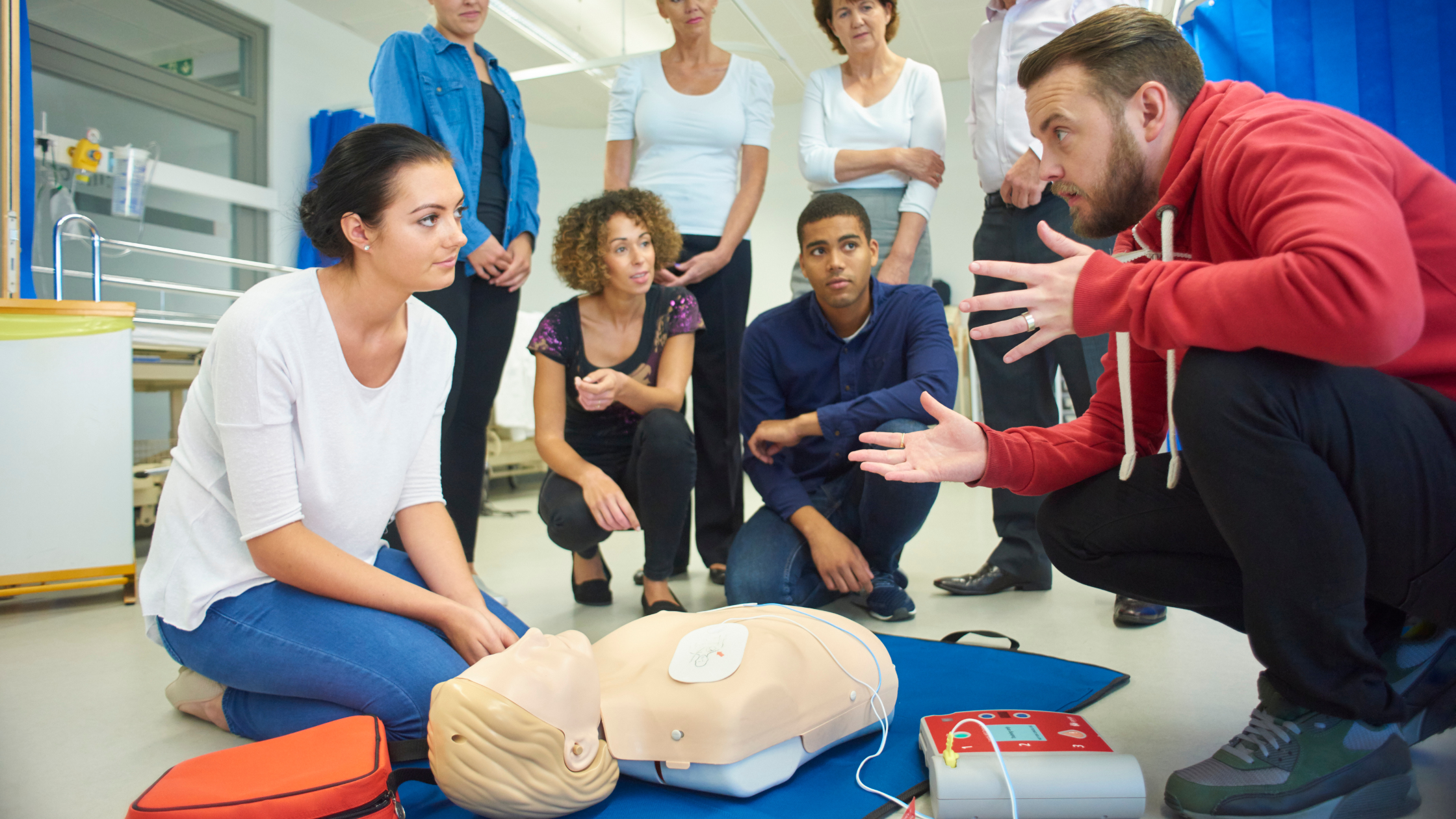Why should you get trained in First Aid? Enrolling in a First Aid course is a great opportunity to learn how to perform some life-saving techniques and apply them in emergencies. One of the most common skills that people expect to gain from a first aid training course is how to properly perform CPR.
But First Aid training is so much more than just learning CPR skills alone. Many different emergencies happen everywhere, especially in public places and in the workplace, and it’s important to understand how to assist in each of these situations to save lives.
Below are some of the most important things you will learn in a First Aid course:
1. CPR and AED
First on the list is CPR or cardiopulmonary resuscitation. It has become seemingly common knowledge as it is seen on TV and film all the time. Everyone has seen how this lifesaving technique is used in many emergencies like when someone has nearly drowned or experiences a heart attack.
And while everyone has seen CPR being performed onscreen, not everyone knows how to perform it correctly, how many compressions to give between breaths, and how deep these compressions should be. These are important factors to consider when giving CPR to someone in need. You will learn all these when you enrol in a First Aid course.
In addition to using CPR on someone having a cardiac arrest, you will also learn how to use an automatic external defibrillator (AED). This life-saving device will double the patient’s chance of survival. Knowing how to use this device is easy, and you will feel even more confident about using it when you get a chance to practice in a classroom setting.
2. Wound Care
What do you do if someone gets a burn as a result of working in the kitchen, or if someone has second-degree burns? It is important to know that there are three degrees of burn injuries. Treating each degree is different, and in a First Aid course, you learn how to correctly treat these burns and bandage wounds.
For first-degree burns, topical remedies and loose gauze should do the work. As a second-degree burn is much more serious and tends to be blistered and a little swollen, you have to run it under cool water and treat it similar to first-degree burns. Third-degree burns that involve blistering, numbness, and whitening of the skin need to be treated by a doctor.
In a First Aid course, you will learn that it is necessary to treat a wound appropriately, no matter how big or small it is. You will also learn how to care for bruises and other face and chest wounds. These wound-care skills can come in handy in everyday life.
3. What to do when someone is choking
At some point, a person will experience choking, whether someone is 6 months, 16 years, or 65 years old. Food can get stuck in the throat, or an allergic reaction to something can lead to choking. This situation requires immediate action as an individual who has had their airways cut off has only about 5 minutes before brain damage occurs.
In a First Aid course, you will learn how to jump in and help an infant, child, or adult when they require assistance to dislodge whatever it is that is blocking their airways. The five back thrusts/five abdominal thrusts technique can save their life and prevent potential brain damage. First Aid training courses will also teach you how to recognise other breathing emergencies and how to offer aid to persons with asthma and anaphylaxis.
4. Poisons
Everyone is aware of how deadly poison can be. Poisons are everywhere; they are not always something that gets accidentally ingested. They can be on materials that we come into contact with or something in the air.
That is why it pays to be properly equipped to deal with them. From carbon monoxide poisoning, poisonous plant exposure, insect stings, bites, and much more—you will understand what to do in these cases. In your course, you will know what to look for and how to care for affected persons until the right medical team arrives.
This is a crucial skill to have, especially for parents. Learning how to respond to insect stings and bites can be reassuring for parents with young children. Individuals who love trekking, hiking, and camping in the wilderness can also learn a great deal from this course.
5. Splints
Accidents can happen anytime, no matter how much we try to keep ourselves safe. At some point, we fall, crash, trip, or slip, and this can lead to some serious bodily injuries. By simply attending a first aid course, you will learn how to help someone with a head, neck, spinal, muscle, or joint injury.
Even when you just happen to be passing by when someone gets injured, having the skills to step in and provide aid can go a long way. If someone has suffered a broken bone and medical help hasn’t arrived yet, you can provide aid by setting a splint. The injury could get worse and cause excessive pain if it is not set before moving the injured person.
A First Aid course will train you how to set a splint with everyday items. You can use household items or even a stick and clothing if access to a first aid kit is limited.
6. Stop Bleeding
A First Aid Course also prepares you to step in and provide aid in situations where someone is bleeding excessively. It is important to stop the bleeding as the injured person could be bleeding from a main artery or vein and would bleed out in 10-15 minutes.
At the Australian Training Institute, we are dedicated to helping you enhance your skills and jumpstart your career with our accredited courses. Let us help you on your journey towards career growth!
Are you interested in other VET courses? We offer a comprehensive range of training courses, including security courses, white card training, first aid course, business courses, and many more. Whether you need to obtain a first aid certification or you want to make a career change, we are to help you with our training and courses!
In most cases, it’s a matter of life or death when someone is bleeding excessively and providing the right first aid while waiting for medical help to arrive is crucial.
We offer a wide variety of first aid classes:
- CPR training
- First Aid training
- Childcare first aid course
- Advanced first aid course
- Advanced resuscitation course
- Asthma and Anaphylaxis training
- Drug and alcohol testing course
- Remote first aid course
- Occupational first aid course
- LVR training (UETTDRRF06)
Australian Training Institute‘s campus is located in 7/51 Brighton Rd, Sandgate QLD 4017 and is just a few minutes away from the Deagon, Brighton, Virginia, Clontarf, Brendale, Strathpine and Chermside.
